-

What Did Hubble See on Your Birthday?
What Did Hubble See on Your Birthday?
-

Name that nebula!
-

During the launch broadcast, you can mark off the words that you hear!
-

Pluto is now categorized as a dwarf planet.
-

The Hubble Space Telescope is a large space telescope orbiting Earth.
-

An orbit is a regular, repeating path that one object in space takes around another one.
-

Play Bingo While Watching the Psyche Spacecraft Launch!
During the launch broadcast, you can mark off the words that you hear!
-

Make a Colorful Crayon Europa with Textures!
Create your own colorful crayon Europa with textures!
-

Learn all about comets!
-

What Is the James Webb Space Telescope?
The James Webb Space Telescope is the largest, most powerful space telescope ever built.
-

The light of daytime comes from our closest star: the Sun. Learn more about it!
-

Become a NASA Space Place Explorer with these printable activity books.
-

Color Your Universe: Find the Hidden Objects
Can you find all the NASA and space-themed hidden objects?
-

Color Your Universe: Find the Hidden Objects
Can you find all the NASA and space-themed hidden objects?
-

Color Your Universe: Find the Hidden Objects
Can you find all the NASA and space-themed hidden objects?
-

Why Do We Care About Water on Mars?
Where there are signs of water, there might also be signs of life!
-

Learn more about what these groups of stars can (and can’t) tell us about our place in the universe.
-

Check out these nine unearthly nightmares that could be happening right now in our own galaxy. Eek!
-

Airplanes and satellites can experience changes in time! Read on to find out more.
-

Learn about impact craters!
-

How Long is a Year on Other Planets?
You probably know that a year is 365 days here on Earth. But did you know that on Mercury you’d have a birthday every 88 days? Read this article to find out how long it takes all the planets in our solar system to make a trip around the Sun.
-

Explore Mars: A Mars Rover Game
Drive around the Red Planet and gather information in this fun coding game!
-

It all depends on what the spacecraft will do! Read on to learn more.
-

The biggest planet in our solar system
-

What Is the Weather Like on Other Planets?
Each of the planets in our solar system experiences its own unique weather.
-
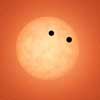
A transit is when one object in space crosses in front of another object in space. The Moon transits the Sun during an eclipse, but did you know that other objects can transit, too? Learn more in this article.
-

Most galaxies formed more than 10 billion years ago! Learn about how we find the age of galaxies using light.
-

Is There Ice on Other Planets?
Yes, there is ice beyond Earth! In fact, ice can be found on several planets and moons in our solar system.
-

A light-year is the distance light travels in one Earth year. Learn about how we use light-years to measure the distance of objects in space.
-

A nebula is a cloud of dust and gas in space.
-

We can use a planet’s gravitational pull like a scale!
-

Learn about what makes our Sun a very busy place!
-

How Many Solar Systems Are in Our Galaxy?
Astronomers have discovered 2,500 so far, but there are likely to be many more!
-

Learn more about these exploding stars!
-

Learn more about these exploding stars!
-

Learn more about what happens when the moon passes between Earth and the sun!
-

Learn more about what happens when the moon passes between Earth and the sun!
-

How Is the Sun Completely Blocked in an Eclipse?
It all has to do with the distance between Earth and the sun and Earth and the moon.
-

How Is the Sun Completely Blocked in an Eclipse?
It all has to do with the distance between Earth and the sun and Earth and the moon.
-

How do gravitational waves give us a new way to learn about the universe?
-

What is an exoplanet? And how do we know they're out there?
-

Searching for Other Planets Like Ours
Exoplanets are far away and hard to see. How do we look for them?
-

Asteroid or Meteor: What's the Difference?
Learn more about asteroids, meteors, meteoroids, meteorites, and comets!
-

And what can we learn from these space rocks in our solar system?
-

Make a mask and pretend to be your favorite planet in our solar system!
-

Make Handprint Art Using Ultraviolet Light!
We can't see the sun's ultraviolet light with our eyes, but with this simple activity we can observe the effects of UV light.
-

This future mission will try to find out if life ever existed on the Red Planet!
-

Mars had water long ago. But did it also have other conditions needed for life?
-

The Mars Rovers: Spirit and Opportunity
What did these twin rovers teach us about the history of water on Mars?
-

Learn more about the first rover to land on Mars!
-

How do rovers help us learn more about the Red Planet?
-

Explore the different types of galaxies!
-

How Does Our Sun Compare With Other Stars?
The Sun is actually a pretty average star!
-

These sunspots taste delicious
-

Share these with your friends and family!
-

Share these with your friends and family!
-

Share these with your friends and family!
-

The icy bits past Neptune’s orbit
-
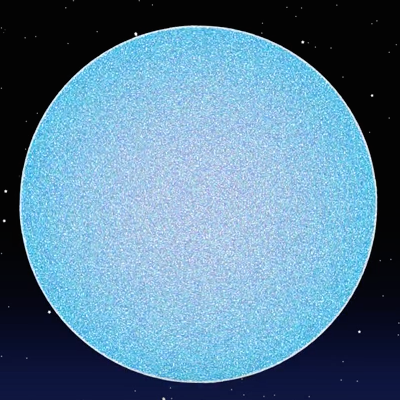
Where Does the Solar System End?
The Oort Cloud!
-

Make the universe stretch and expand!
-

Make your own colorful aurora!
-

Play Helios: A Game About How the Sun Makes Energy!
Where does the Sun's energy come from? Play Helios to find out!
-

And how round are they?
-

What causes this beautiful light show?
-

Paint pumpkins with space and Earth science designs
-

Paint pumpkins with space and Earth science designs
-

Paint pumpkins with space and Earth science designs
-

and dark energy, too!
-

Sunburns are no fun.
-

Lunar Eclipses and Solar Eclipses
What’s the difference?
-

How many are there?
-

The coldest planet in our solar system
-

The planet that spins on its side
-

The planet with beautiful rings
-

The biggest planet in our solar system
-

The red planet
-

The planet with living things
-

The hottest planet in our solar system
-

Learn more about the planets in our solar system
-

The smallest planet in our solar system
-

Make a Pinwheel Galaxy Pinwheel
A galaxy in the palm of your hand
-

Have some fun with the sun!
-

A comet close to home
-

How Long Is One Day on Other Planets?
Learn to make a graph with the answer!
-

Why do we call it that?
-

And how long will it shine?
-

How Many Moons Does Each Planet Have?
We have one, but some planets have dozens.
-

Learn more about this icy moon of Jupiter!
-

Where Does Interstellar Space Begin?
Interstellar space begins where the sun’s magnetic field stops affecting its surroundings.
-

Where Does Interstellar Space Begin?
Interstellar space begins where the sun’s magnetic field stops affecting its surroundings.
-

Where Does Interstellar Space Begin?
Interstellar space begins where the sun’s magnetic field stops affecting its surroundings.
-

Jumping the Tallest Cliff in the Solar System
How far would we have to travel to get there?
-

What are they and what will become of them?
-

Where Does the Sun's Energy Come From?
Space Place in a Snap answers this important question!
-

What's It Like Inside Jupiter?
Jupiter's core is very hot and is under tons of pressure!
-

Why Does the Moon Have Craters?
It's not because the Moon gets hit by meteors more often...
-
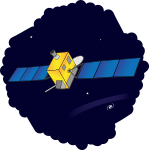
Become a NASA engineer!
-
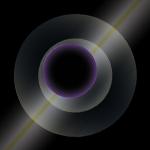
Space Place in a Snap tackles this fascinating question!
-

Astronomers may have found a planet without a sun!
-

Astronomers may have found a planet without a sun!
-
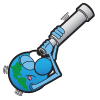
The answer isn't so simple...
-

The answer isn't so simple...
-
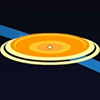
How Did the Solar System Form?
The story starts about 4.6 billion years ago, with a cloud of stellar dust.
-

Why is the sun's atmosphere so much hotter than its surface?
-

Explore the many volcanoes in our solar system using the Space Volcano Explorer.
-

Write your own zany adventure story!
Write your own zany adventure story!
-

Write your own zany adventure story!
Write your own zany adventure story!
-

Write your own zany adventure story!
Write your own zany adventure story!
-

The key is curiosity!
-
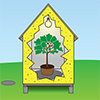
Curiosity is the key!
-

The Sun’s activity follows an 11-year cycle. Learn more about it!
-

Bad (space) weather cancels pigeon races!
Why do pigeons care about what the Sun is doing?
-

The answer may surprise you.
-

Could they have brought the water to our planet?
-

For the New Moon, you must eat all the creme filling!
-

These are yummy and need no baking!
-

What causes them?
-

What causes them?
-

Get up close and personal with our own star.
-

Gallery of NASA Universe Images
Galaxies, nebulae, and supernova remnants to view or print.
-

Gallery of NASA Solar System Images
Glorious planets and moons to view or print.
-

Gravity is the force by which a planet or other body draws objects toward its center.
-

Voyager 1 and 2: The Interstellar Mission
These spacecraft traveled to the outer planets!
-

What do you get when you cross an earthquake with a tidal wave?
-

Play Solar System Switch-a-Roo!
Put clues together to find the planets and moons.
-

And how does it help us find new planets?
-

And how does it help us find new planets?
-

Make yummy potatoes look like asteroids.
-

Explore the Electromagnetic Spectrum
The windows show the Universe in all its colors.
-

And what are they made of?
-

Turn an old CD into Saturn's rings.
-
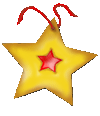
Find out why stars aren't all the same color.
-

Find out why stars aren't all the same color.
-

Is Mira the zippiest star in the galaxy?
-

This type of weather comes from activity on the Sun’s surface.
-

And learn about conservation of oomph!
-

How can one gas in the air be both good and bad?
-

Make a colorful work of galactic art.
-

Let the beauty of the galaxies shine in your room.
-
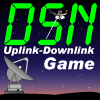
DSN Uplink-Downlink: A DSN Game
Help the big antennas gather data from the spacecraft.
-

Help Juno reveal Jupiter's true nature.
-

Catch as many astrophysical objects and phenomena as possible in this game! This link takes you away from NASA Space Place.
-

Build a model spacecraft to explore the universe!
Paper models of the great space observatories and explorers of the universe. This link takes you away from NASA Space Place.
-

Build a model spacecraft to explore the solar system!
Paper models of your favorite solar system explorers. This link takes you away from NASA Space Place.
-

Top 10 facts about the Sun??? and lots more. This link takes you away from NASA Space Place.
-

A learning center for young astronomers. This link takes you away from NASA Space Place.
solar-system

Solar System
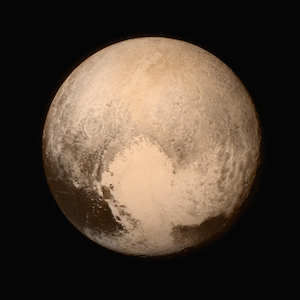
Hello, Pluto!
In July of 2015, a spacecraft named New Horizons arrived at Pluto after a long journey. It took amazing pictures of this dwarf planet and will continue to study other objects in the Kuiper Belt from 2018 to 2022.
Find out more about Pluto.
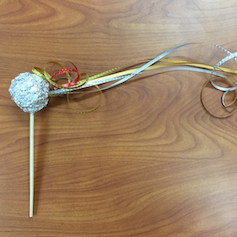
Make a comet on a stick!
Games
Crafts
Activities
Media
Planets and Dwarf Planets
Moons
Meteors and Asteroids
Comets
Exploration
Everything!

